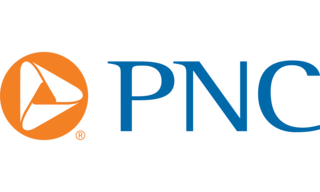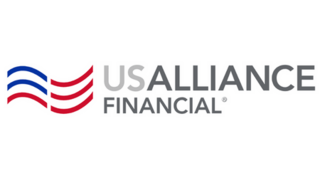6 Best Savings Accounts for Kids
One of the best things you can do for your child is get them on the road to a bright financial future. By opening a savings account for your little one, you're not only ensuring they'll have money set aside for their education or for a rainy day fund, but you're also teaching them about the value of saving in a world that loves to spend.
That's why it's important to choose a savings account that's perfect for your child. While the best no-fee savings accounts might seem lucrative, they may not offer other important benefits you might find valuable for your child. For example, a high-yield savings account could earn more interest than a traditional savings account.
We compiled our picks for the best savings accounts for kids to help you narrow down your options.
Our top picks for savings accounts for kids
- Capital One Kids Savings Account: Best No-Stress Option
- PNC S is for Savings Account for Kids: Best Educational Experience
- FourLeaf Federal Credit Union Young Adult Savings: Best For Teens
- Spectrum Credit Union MySavings Youth Account: Best High-Yield Account
- USAlliance Financial’s MyLife Savings for Kids: Best For Diaper-to-Diploma
- Northpointe Bank Kids Savings: Best For The Big Savers
Best Savings Accounts for Kids reviews
- No minimum deposit to open
- No minimum balance requirements or fees
- While the 0.3% APY is competitive, it's hardly the highest on this list
Why we chose it: With no minimum deposit and no minimum balance required, you won't have to worry about getting hit with surprise fees, all while your child continues to enjoy a competitive 0.3% APY.
- APY
- 0.3%
- Opening deposit
- No minimum deposit to open
- Fees
- No fees
- Age limits
- Any child can open an account along with one adult; if the child is under 12, the adult must be the child's parent or legal guardian
- Bonuses
- $0
The Capital One Kids Savings account is a user-friendly choice to start little savers on their financial journey. Its 0.3% APY is competitive for a youth account, and there are no monthly fees or minimum balance requirements to maintain this rate.
The Capital One app allows kids to watch their money grow, and the adult custodian on the account can easily link their child's account to their own to transfer cash. You can also set up automatic transfers, which makes paying weekly allowance a breeze.
As a bonus, when your child turns 18, the account will automatically convert to a 360 Savings account, allowing your child to access their funds on their own and enjoy the benefits of an adult account. Of all the options on this list, the Capital One account is the most low-risk, stress-free option you could choose for your child.
- Offers a unique educational approach
- No minimum deposit to open
- Very low .01% APY
- Monthly service charge of $5 kicks in automatically when the child turns 18 if the balance is less than $300
Why we chose it: In partnership with Sesame Street®, PNC's S is for Savings account offers a fun and educational saving experience for your child.
- APY
- .01%
- Opening deposit
- No minimum deposit to open
- Fees
- Monthly service charge of $5 after the account holder turns 18, unless a minimum balance of $300 is maintained
- Age limits
- Any child under 18 may open an account jointly with an adult parent or legal guardian
- Bonuses
- $0
By partnering with Sesame Street®, PNC offers an interesting approach to educating kids on financial literacy while allowing them to save real money. Their interactive online portal allows kids to learn how money and savings work through fun lessons from their favorite Sesame Street® characters.
You can also teach your kids about budgeting by logging in to your PNC online banking portal and selecting the S is for Savings tab. There, you'll see three cartoon jars labeled "savings," "spending" and "sharing." From here, you and your child can work together to create a budget.
This is a fantastic option for any parent who wants their child's savings experience to be as educational as possible. However, their .01% APY leaves much to be desired, which means this might not be the best option if you anticipate that your child's account will ever hold more than a few hundred dollars.
- Competitive 5.0% APY
- No monthly fees
- Easily add a checking account when your child is ready
- Very few physical branches throughout the United States
Why we chose it: With the ability to easily add a youth checking account, this is the perfect savings account for teens who are ready to gain financial independence.
- APY
- 5.0% for up to $1,000
- Opening deposit
- $0
- Fees
- No monthly maintenance fees
- Age limits
- For ages 20 and younger
- Bonuses
- $0
While educational portals with Sesame Street® characters might be great if you're opening an account for a six-year-old, your sixteen-year-old likely has different priorities. The FourLeaf Federal Credit Union Student Savings account is a great choice for teens, as it allows them to eventually open an additional teen checking account, offering them their own debit card with no overdraft fees.
The savings account offers kids a lucrative 5.00% APY on balances up to $1,000 in addition to no monthly maintenance fees. FourLeaf also allows kids access to 24/7 digital banking once they turn 13, which means your teen can gain independence by monitoring their own spending and savings.
The one drawback is that while anyone in the United States may join the credit union, few physical FourLeaf branches exist in most parts of the country. However, they make up for this with an abundance of in-network ATMs and a comprehensive online banking experience.
- High APY
- No minimum balance required
- Membership requirements are so specific as to render this a non-starter for the vast majority of people
Why we chose it: At 7.0%, Spectrum offers an unheard-of APY for a youth account.
- APY
- 7.0% on account balances up to $1,000
- Opening deposit
- $25
- Fees
- No minimum balance if you sign up for eStatements within 60 days of opening
- Age limits
- Anyone under 18
- Bonuses
- $0
If you're wondering if that 7.0% APY is a typo, it is not. On balances of up to $1,000, your child can earn an APY more competitive than those enjoyed by many of their adult counterparts. With no minimum balance (when you sign up for eStatements within the first 60 days of joining) and a mere $25 minimum opening deposit, this is an exciting opportunity for your child to watch their money grow.
So what's the catch? Well, getting into Spectrum is harder than getting into most country clubs. To be eligible for membership, you must meet one of the following criteria:
- Be a non-manual employee of the Bechtel Corporation or one of its subsidiaries
- Be a member or employee of a Spectrum Credit Union sponsor organization
- Be a member or employee of a select list of partner nonprofits
- Live, work or study in certain areas in San Francisco, California or Frederick County, Maryland
- Be a family member or descendant of someone who meets the above criteria
While Spectrum offers top-of-the-line financial products, it's an inaccessible option to the vast majority of young savers.
- Annual $10 birthday gift
- Easy transition from the kids account to the teen account
- APY higher than national average, but less lucrative than others on this list
Why we chose it: With its yearly $10 birthday gift and easy option to transition to a teen account, USAlliance Financial's MyLife Savings for Kids is an account your child can grow with.
- APY
- 2.0% on the first $500
- Opening deposit
- $1
- Fees
- None
- Age limits
- After 13, transition to Teen Savings Option
- Bonuses
- $10 birthday gift each year
Some options on this list are ideal for young children, while others are better suited for older kids who will transition to a checking account very soon. If you're looking for a savings account that can take your child from diaper to diploma, USAlliance is a great option.
They offer a decent 2.0% APY up to $500 and no fees. When your child turns 13, they can transition to a teen account that offers the option of a checking account with a debit card.
One of the perks of this account is that it gives kids a $10 bonus every year on their birthday. While that might not exactly put them through college, little perks like that can help create excitement around money.
- Lucrative APY structure that can help your child make their money grow
- No monthly fees
- While the APY structure is enticing, it's not as high as some of Northpointe's credit union counterparts
Why we chose it: With a tiered APY structure, the Northpointe Bank Kids Savings account is a great option for those planning to save large sums of money.
- APY
- 1.5% on the first $1000
- Opening deposit
- $10
- Fees
- None
- Age limits
- Anyone under 18
- Bonuses
- $0
If your child is already talking about building their empire, then the Northpointe Bank Kids Savings account is probably the right choice for their goals of world domination (when it comes to saving, of course). It offers a highly competitive tiered APY structure, which is structured as follows:
- Earn a 1.5% APY on the first $1,000
- Earn 1.12% APY on the next $1,000 to $9,999
- Earn 0.35% APY on any money saved beyond the second tier
If you're thinking these numbers might not be as lucrative as others we've seen, bear in mind that institutions such as Spectrum are credit unions with high barriers to membership. Northpointe, on the other hand, is a bank that just about anyone can join.
Other companies we considered
While the companies mentioned above are great options for children's savings accounts, they aren't the only ones available. Here are a few other options worth investigating.
BECU Early Saver Youth Account
- Highly competitive 5.38% APY on the first $500
- No monthly fees
- No minimum balance to open
- Only available to residents of Washington, certain parts of Oregon, and certain employees and alumni
Why we didn't choose it: Similar to Spectrum, it offers a very lucrative APY but has restrictive membership requirements.
- APY
- 5.38% APY on the first $500
- Opening deposit
- No opening deposit minimum
- Fees
- None
- Age limits
- Anyone under 18
- Bonuses
- $0
While the BECU Early Saver Youth Account offers a fantastic 5.38% APY for the first $500 (0.30% APY on balances over $500), no monthly fees and no minimum balance requirements, most people won't meet their eligibility requirements. Membership in this credit union is only available to those who are:
- Residents of Washington state
- Residents of certain areas of Oregon
- Employees of BECU or Boeing
- Members of select partner associations, including the UW Alumni Association or WSU Alumni Association
Much like Spectrum and other exclusive credit unions, it's a great option if you're eligible, but the vast majority of people won't be.
Wells Fargo Way2Save Savings Account
- No monthly fees for those under 24 years old
- No minimum balance to open
- At .15% APY, it simply couldn't compete with other options available to consumers
Why we didn't choose it: It's a similar product to what's offered by Capital One with a lower APY.
- APY
- .15%
- Opening deposit
- .15% No minimum deposit to open
- Fees
- No monthly maintenance fees for account holders under 24 years old
- Age limits
- Children under 13 need an adult joint owner to open, while those 13-17 may open accounts independently
- Bonuses
- $0
It's always nice to see a savings account with no fees, minimum balance or deposit requirements. However, Wells Fargo offers a similar product as Capital One with half the APY. The one benefit of this account is that young people can enjoy the no monthly maintenance fee benefit until they're 24 years old, which could potentially make it a good option for a college-bound young person who may be disorganized with their finances.
M&T Starter Savings Account
- No minimum deposit to open
- No monthly maintenance fees
- Very low APY
- Account won't convert to an adult account when your child turns 18
Why we didn't choose it: While it might be a fine choice if there's an M&T branch located very conveniently near you, there are no features that make the Starter Savings account jump out as a superior option to others available on the market.
- APY
- .01%
- Opening deposit
- No minimum deposit to open
- Fees
- No monthly maintenance fees
- Age limits
- Available to anyone under 18
- Bonuses
- $0
Very few things jump out about the M&T Starter Savings Account. While it offers consumers no minimum deposit to open and no monthly maintenance fees, its APY is very low and seems to offer no benefits or bonuses to compensate for it. Furthermore, while many of the accounts on our list will automatically convert to adult accounts when your child turns 18, M&T does not offer this option, and account owners will have to manually open a new savings account and move the money there.
Savings Accounts for Kids Guide
When it comes to choosing the best savings accounts, the criteria for adults differ significantly from those for kids. Here's our guide on savings accounts for kids and how you can make the right choice for your child.
Main things to know before choosing savings accounts for kids
One of the biggest factors in choosing a kids' bank account is the APY, or the annual percentage yield, which represents how much you'll earn on the money in the account. However, the interest you earn isn't the only factor to consider in choosing one financial institution over another. If your child is on the precipice of young adulthood, it might be important that the bank or credit union also offers youth checking programs so they can have their own debit card. For many people, proximity to a physical branch is a major factor, so many continue to choose community banks with somewhat less lucrative offerings than major financial institutions.
What is the average opening deposit of savings accounts for kids?
While most banks seem to require very small minimum deposits of $5 to $25, you may encounter larger financial institutions with steeper requirements, especially if you are investing a great sum of money. However, many commercial banks require no minimum deposits to open an account to entice new customers. This seems especially true of children's bank accounts, as these accounts pose little risk to the financial institution. Even the best savings account for kids might seem like it has too-good-to-be-true minimum deposit requirements.
What are the requirements to apply for savings accounts for kids?
The requirements to apply for a savings account for kids will vary depending on the bank or credit union. While some may require a certain minimum deposit or require that the child in question be of a specific age group, the vast majority of banks tend to take anyone under 18. When it comes to credit unions, the requirements could be very specific, such as requiring that the parent or legal guardian of the child be a member or employee of a partner organization.
What are the benefits of a savings account for kids?
For one, your child can save for their future and potentially grow their savings with the right APY. This money can be put toward college tuition, travel and other important — but expensive — life milestones.
Another benefit has to do with the gift of financial education. By instilling in your child the importance of saving over spending, you're helping to ensure that they grow into a financially literate adult. In May of 2023, the collective credit card debt of the United States hit an all-time high of $930 billion. Many adults who feel like they're drowning in debt lament that they were never taught important financial management skills in childhood.
By teaching your kids the importance of saving when they're still young, you can help them to avoid common financial burdens. While it's one thing to invest for a child, it's equally important to bring your child into the process and let them have hands-on experience with finance when they're young.
Savings Accounts for Kids FAQs
How much money should my kid put in their savings account?
How much your child decides to put into a savings account depends on a few factors. First, they should consider their financial goals and why they're saving. If trying to save up for something specific, such as a new computer or car, they should divide the amount of the purchase by the number of months they'd like to save for to determine how much they should contribute to their monthly savings.
However, if they're just saving for general reasons or to invest for college, then they may want to figure out how much is needed for essentials or even pocket change each month and save the rest. There's never such a thing as "too much savings," and your child is at a time in their life when they don't have to worry about rent or expenses. So they're at the prime age to save as much money as possible.What happens to the savings account when the kid turns 18?
What is the minimum age to open a savings account for kids?
Should I pay taxes on my kid's savings account?
How We Found the Best Savings Accounts for Kids
To compile this list, we researched the savings accounts for kids available at various financial institutions and reviewed the following:
- APYs and Interest Rates - We reviewed each financial institution's APYs and interest rates and looked for accounts that would yield the highest return.
- Unique Opportunities For Kids - We looked for accounts that offered unique opportunities for kids, such as financial education programs or birthday bonuses.
- Red Flags - We looked for any possible red flags, such as accounts that didn't automatically convert to adult accounts when the child turns 18, a convenient feature that most financial consumers appreciate.
Summary of the Best Savings Accounts for Kids of 2025
- Capital One Kids Savings Account: Best No-Stress Option
- PNC S is for Savings Account for Kids: Best Educational Experience
- FourLeaf Federal Credit Union Young Adult Savings: Best For Teens
- Spectrum Credit Union MySavings Youth Account: Best High-Yield Account
- USAlliance Financial’s MyLife Savings for Kids: Best For Diaper-to-Diploma
- Northpointe Bank Kids Savings: Best For The Big Savers






